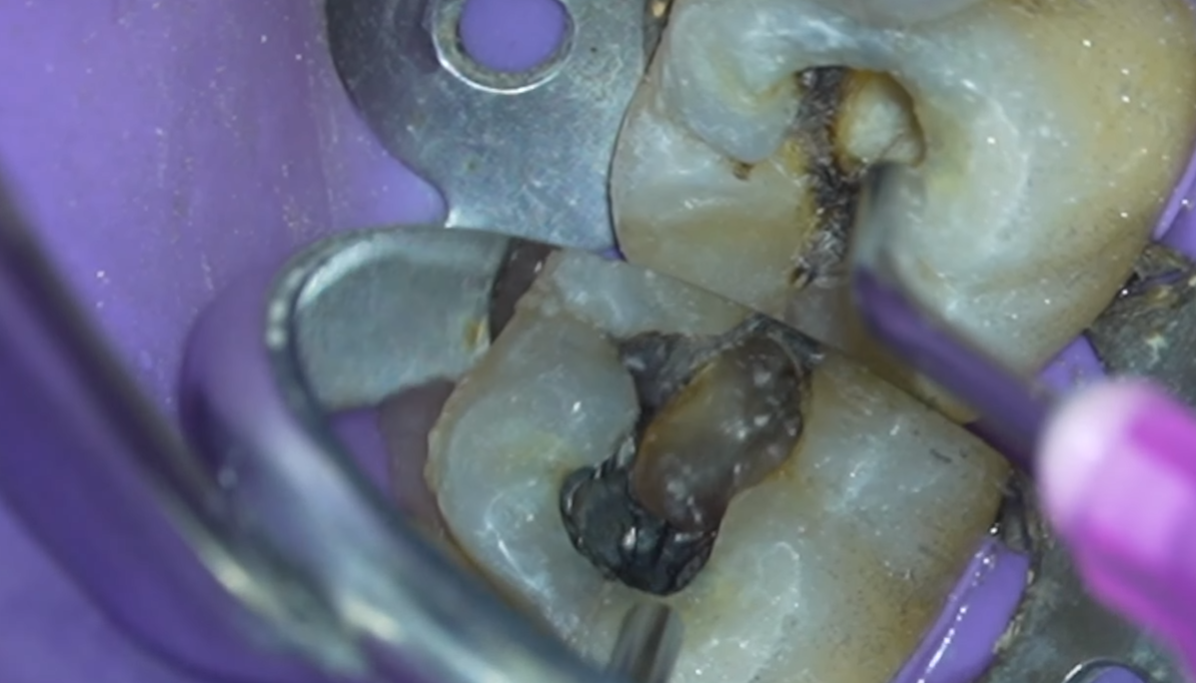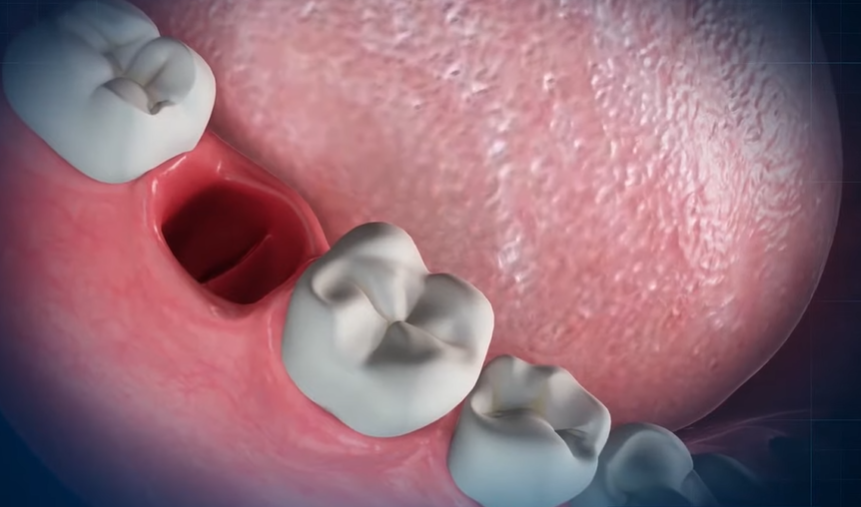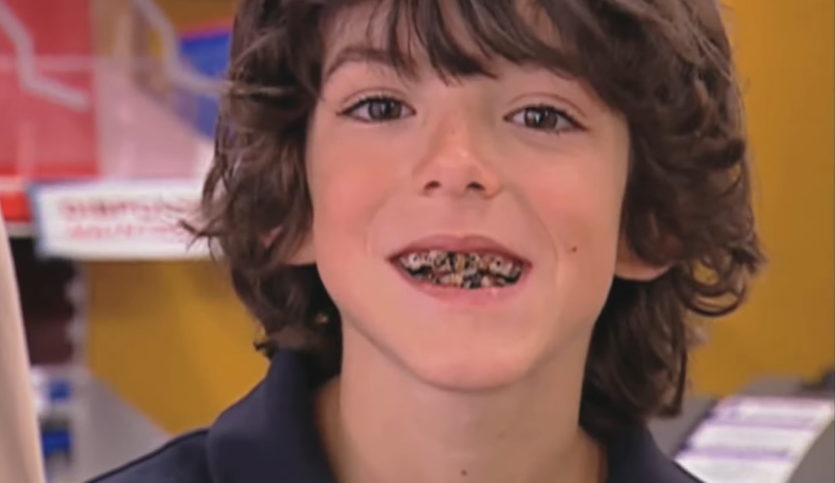If you buy through links on our site, we may earn a small affiliate commission to help support the blog - at no extra cost to you. It never influences our product selection process. Thank you!
Ever winced in pain when your tooth hurts while drinking cold water? That sharp, shooting sensation can turn a refreshing sip into an uncomfortable experience. You’re not alone—tooth sensitivity to cold is one of the most common dental complaints affecting millions of people.
The good news is that cold-sensitive teeth are often treatable once you understand the underlying cause. Whether it’s worn enamel, receding gums, or a cavity developing, identifying why your teeth react to cold temperatures is the first step toward finding relief. In this text, we’ll explore the reasons behind your discomfort and the answers that can help you enjoy cold beverages without the pain.
Why Your Tooth Hurts When Drinking Cold Water
Tooth sensitivity to cold occurs when the protective layers of your teeth become compromised, exposing the sensitive inner parts. Dentin, the layer beneath your enamel, contains thousands of microscopic tubules that connect to the nerve center (pulp) of your tooth. Cold beverages stimulate fluid movement in these tubules, triggering nerve signals that register as pain.
Worn Tooth Enamel
Enamel erosion exposes the dentin beneath, creating pathways for temperature sensations to reach your nerve endings. Acidic foods and drinks like citrus fruits, tomato sauce, and soda gradually dissolve this protective layer. Brushing too hard or using abrasive toothpaste compounds this problem by physically wearing away enamel. Many patients, like Sarah who visited our office last month, don’t realize their vigorous brushing technique is actually damaging their teeth rather than cleaning them more effectively.
Gum Recession
Receding gums pull back from your teeth, uncovering the sensitive root surfaces that lack enamel protection. Periodontal disease, the leading cause of gum recession, affects 47.2% of adults over 30 in the United States. Aggressive brushing techniques push gums backward over time, while clenching and grinding create excessive forces that accelerate recession. Genetic factors also play a important role in how resistant your gum tissue is to these pressures.
Tooth Decay and Cavities
Cavities create openings in your enamel, allowing temperature changes to reach the sensitive dentin layer more easily. Early decay may only cause sensitivity to cold, while advanced cavities often produce constant pain. Untreated decay progressively damages more tooth structure, eventually reaching the pulp where nerves and blood vessels reside. Dr. Harris often tells patients that cold sensitivity can be an early warning sign of a developing cavity, providing an opportunity for intervention before more severe symptoms develop.
Cracked Teeth
Dental fractures expose inner tooth structures to temperature changes and bacterial invasion. Hairline cracks may be invisible to the naked eye but still allow cold substances to penetrate deeply into your tooth. Biting hard foods, chewing ice, or sustaining dental trauma commonly cause these structural damages. Temperature changes in your mouth can actually make cracks temporarily widen, intensifying sensitivity when drinking cold water.
Recent Dental Procedures
Temporary sensitivity follows many dental treatments as your teeth adjust to modifications. Fillings, crowns, and whitening treatments often create a 7-14 day period of increased sensitivity. Root canals might cause cold sensitivity during the healing phase as surrounding tissues recover from inflammation. Professional cleanings occasionally trigger brief sensitivity by removing surface buildup that previously insulated the teeth.
Common Causes of Tooth Sensitivity to Cold

Tooth sensitivity to cold occurs when protective barriers of your teeth become compromised, exposing the sensitive inner structures to temperature changes. Several exact dental conditions can trigger this sharp, uncomfortable sensation when you drink cold water or enjoy ice cream.
Exposed Dentin and Worn Enamel
Enamel erosion exposes dentin, the layer beneath your tooth’s protective coating, creating pathways for cold sensations to reach nerve endings. Microscopic tubules in dentin connect directly to the nerve center of your tooth, triggering sharp pain when stimulated by cold beverages. Aggressive brushing with hard-bristled toothbrushes or abrasive toothpastes gradually wears down enamel over time. Many patients report that sensitivity develops gradually—Dr. Todd B. Harris often sees patients who noticed mild sensitivity for months before it became severe enough to prompt a dental visit.
Cavities and Tooth Decay
Dental decay creates openings in your tooth enamel that allow cold substances to penetrate deeply toward the nerve. Cavities form when bacteria produce acids that dissolve tooth structure, creating holes that expose sensitive inner tissues. Early-stage decay might cause mild sensitivity, while advanced cavities often trigger intense, lingering pain when drinking cold water. One patient described her experience: “I ignored occasional twinges when drinking iced coffee until one morning when the pain was so severe I couldn’t finish my drink—that’s when I discovered I had a important cavity.”
Recent Dental Work
Dental procedures temporarily increase sensitivity as your teeth adjust to modifications and repairs. Fillings, crowns, and professional cleanings can cause inflammation of the dental pulp, leading to transient cold sensitivity. This type of sensitivity typically resolves within 2-4 weeks as your tooth recovers from the procedure. Composite fillings specifically may create temporary sensitivity due to the bonding process and material shrinkage during curing.
How Dentists Diagnose Cold Sensitivity
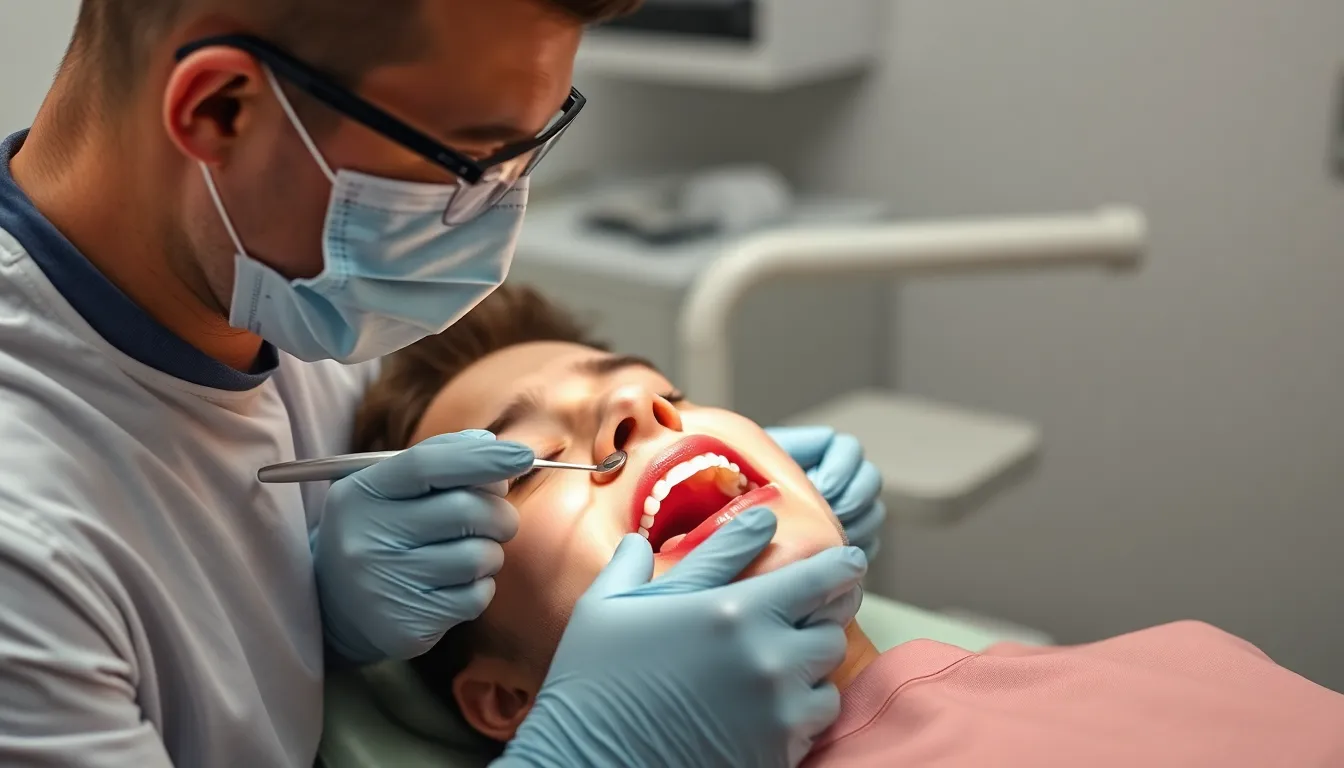
Dentists use exact techniques to determine why your tooth hurts when drinking cold water. This systematic approach helps pinpoint whether your pain stems from enamel loss, gum recession, cavities, or cracks in your teeth.
Examination Process
Your dentist begins with a comprehensive clinical examination of the affected teeth. During this inspection, they look for visible signs of gum recession that might be exposing sensitive tooth roots. They carefully check for worn enamel, cracks, or fractures that create pathways to the nerve. Your dentist examines tooth surfaces for decay or cavities that could be causing the sensitivity. They also assess your gums for signs of disease or inflammation that might contribute to the problem. The examination includes questions about your pain history—when it started, what triggers it (particularly cold water), how long it lasts, and whether it’s occasional or constant.
Diagnostic Tests
To confirm cold sensitivity and identify its exact cause, your dentist employs several specialized tests. The cold test involves applying a cold stimulus directly to the tooth using a cold spray or ice stick to recreate your symptoms and locate the sensitive area. Percussion testing, where the dentist gently taps on your tooth, helps determine if inflammation or infection exists in the dental pulp. X-rays provide crucial information about hidden cavities, root issues, or abscesses that aren’t visible during a regular examination. Your dentist might also perform periodontal probing to measure gum pocket depths, helping detect gum disease or recession that exposes sensitive root surfaces.
Treatment Options for Cold-Sensitive Teeth

Treating teeth that hurt when exposed to cold water involves addressing the underlying cause of sensitivity. Several effective options exist, ranging from simple at-home remedies to professional dental procedures.
Over-the-Counter Answers
Desensitizing toothpaste offers important relief for many people with cold-sensitive teeth. These specialized formulations contain compounds that block sensation transmission from your tooth surface to the nerve, though they require consistent use for several weeks before you’ll notice results. Many patients report gradual improvement after switching to sensitivity toothpaste as part of their daily routine. Using a soft bristled toothbrush proves equally important in managing sensitivity, as firmer bristles can worsen gum recession and enamel wear. Gentle flossing techniques complement this approach by maintaining gum health without causing additional irritation that might contribute to sensitivity issues.
Prevention Strategies for Tooth Sensitivity

Preventing tooth sensitivity offers a proactive approach to avoiding the sharp pain experienced when drinking cold water. With several effective methods available, you can protect your teeth and maintain comfort while enjoying your favorite cold beverages.
Proper Brushing Techniques
Gentle brushing techniques preserve your enamel and prevent sensitivity to cold water. Using a soft-bristled or electric toothbrush helps avoid gum irritation and enamel wear that can increase sensitivity over time. Brush with small, circular motions rather than aggressive side-to-side scrubbing that damages protective tooth layers. Your toothbrush requires replacement every 2-3 months to ensure it cleans effectively without causing unnecessary abrasion to your teeth.
Dr. Todd B. Harris notes, “Many patients are surprised to learn they’ve been brushing incorrectly for years. One patient came to me with severe sensitivity from brushing too hard with a medium-bristled brush, and switching to a soft brush with proper technique resolved her symptoms within weeks.”
Dietary Modifications
Smart dietary choices significantly reduce cold-triggered tooth pain. Try licking ice cream instead of biting directly into it to minimize contact with sensitive areas. Acidic foods and beverages erode enamel over time, so limiting consumption of citrus fruits, tomatoes, and carbonated drinks helps maintain your protective tooth coating. Drinking cold beverages through a straw directs liquid past your teeth, reducing sensitivity episodes and protecting vulnerable areas from temperature extremes.
Regular Dental Check-ups
Consistent dental visits catch sensitivity issues before they worsen. Your dentist can identify and treat underlying causes like plaque buildup, cavities, gum disease, or cracked teeth during routine examinations. Early intervention for receding gums, tooth decay, or other dental problems prevents progression of sensitivity and reduces pain from cold stimuli. Professional cleanings remove harmful buildup that home care might miss, addressing potential sensitivity triggers before they cause discomfort.
When to See a Dentist About Cold Sensitivity
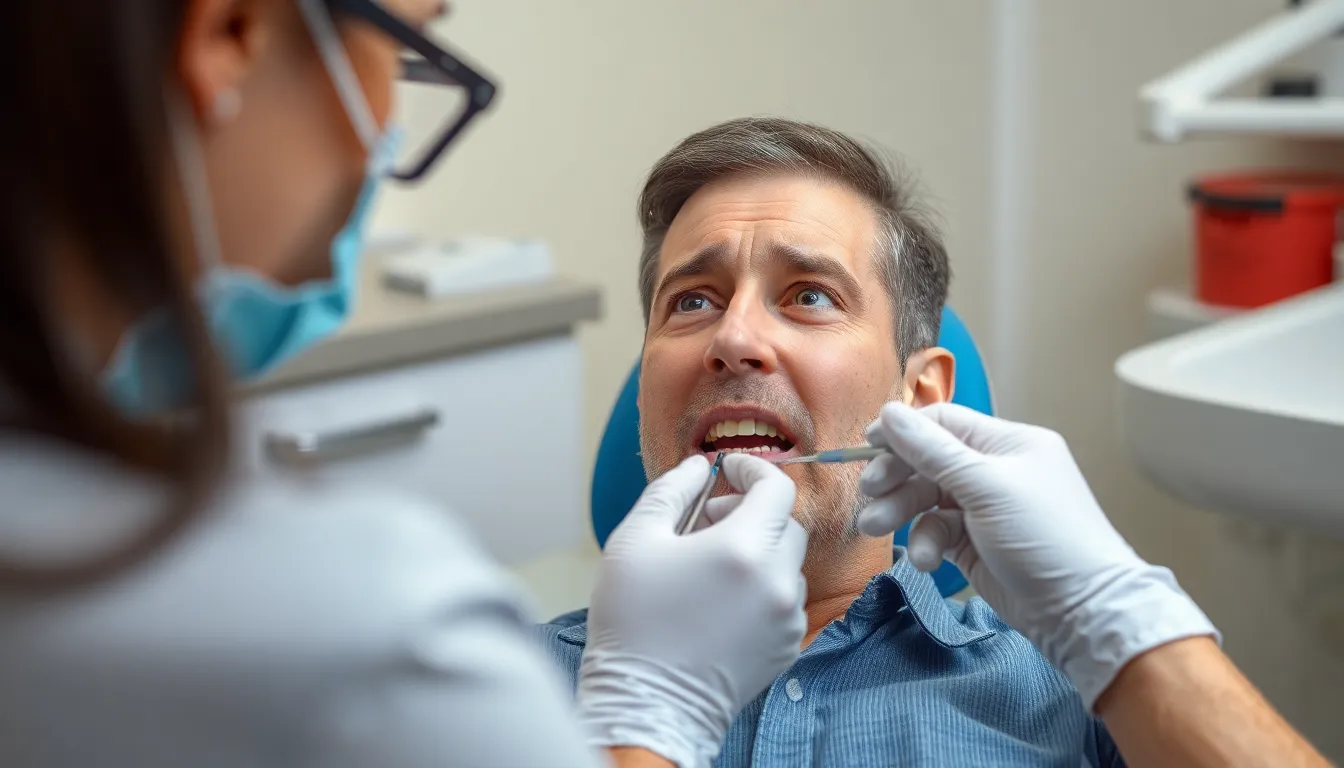
Persistent tooth pain when drinking cold water requires professional attention if it lasts longer than 3-4 days. Your discomfort isn’t something to ignore, as continuing sensitivity often signals underlying issues that need treatment. Dental professionals can identify whether your sensitivity stems from exposed tooth roots, enamel loss, cavities, or cracks.
Seek immediate dental care if you experience:
- Severe pain that disrupts your daily activities or sleep
- Sensitivity to both hot and cold foods and beverages, which may indicate nerve damage or an abscess
- Visual changes in your teeth such as discoloration or visible holes
- Swelling around the sensitive tooth or in your gums
- Pain that persists even when not consuming cold items
Dr. Todd B. Harris recalls a patient who ignored cold sensitivity for months, assuming it would resolve on its own. “By the time she came in, what started as minor sensitivity had developed into a serious infection requiring a root canal. Early intervention could have meant a simple filling instead,” he explains.
During your dental visit, expect a thorough examination to pinpoint the exact cause of your sensitivity. Your dentist will likely perform diagnostic tests including cold testing, percussion testing, and X-rays to visualize any hidden damage beneath the surface. These diagnostic measures ensure you receive targeted treatment for your exact condition rather than temporary symptom relief.
While waiting for your appointment, manage discomfort by avoiding extremely cold or acidic drinks, using toothpaste formulated for sensitive teeth, and brushing gently with a soft-bristled toothbrush. These temporary measures can provide relief but shouldn’t replace professional dental care for addressing the root cause of your sensitivity.
Conclusion
Tooth sensitivity to cold water doesn’t have to disrupt your daily life. By understanding the underlying causes like worn enamel gum recession or cavities you can take meaningful steps toward relief.
Whether you opt for desensitizing toothpaste adjust your brushing technique or make simple dietary changes you have options for managing this common condition.
Remember that persistent sensitivity warrants professional attention. Your dentist has the expertise and tools to identify and treat the root cause effectively. With proper care and preventive measures you’ll soon be able to enjoy cold beverages without that dreaded jolt of pain.
Frequently Asked Questions
What causes teeth to be sensitive to cold?
Teeth become sensitive to cold when protective layers are compromised, exposing inner tooth structures. Common causes include worn enamel from acidic foods or aggressive brushing, receding gums from periodontal disease, cavities creating openings in the enamel, cracked teeth allowing temperature changes to penetrate deeply, and recent dental procedures that temporarily increase sensitivity.
How do dentists diagnose cold sensitivity?
Dentists diagnose cold sensitivity through a comprehensive clinical assessment examining teeth for gum recession, worn enamel, cracks, and cavities. They perform diagnostic tests including cold tests (applying cold stimuli to identify sensitive teeth), percussion testing (tapping on teeth to check for cracks), and X-rays to detect hidden decay or damage that might be causing sensitivity.
What over-the-counter treatments can help with sensitive teeth?
Desensitizing toothpaste is the primary over-the-counter solution for sensitive teeth. These products contain compounds that block sensation transmission from the tooth surface to the nerve. For effectiveness, use consistently for several weeks. Additionally, switch to a soft-bristled toothbrush and gentle flossing techniques to prevent further gum recession and enamel wear.
How can I prevent tooth sensitivity to cold?
Prevent tooth sensitivity by using proper brushing techniques with a soft-bristled toothbrush and gentle circular motions. Modify your diet by limiting acidic foods and beverages. When consuming cold items, use straws to minimize contact with sensitive areas and lick ice cream instead of biting it. Schedule regular dental check-ups to catch sensitivity issues early.
When should I see a dentist about tooth sensitivity?
See a dentist if sensitivity persists longer than 3-4 days, as this may indicate serious issues like exposed roots, enamel loss, cavities, or cracks. Seek immediate care for severe pain, sensitivity to both hot and cold, visual changes in teeth, swelling, or pain that persists without consuming cold items. Professional examination is essential for targeted treatment.
Can tooth sensitivity go away on its own?
Sometimes minor sensitivity can resolve itself, particularly if it’s related to temporary factors like recent dental work. However, most causes of tooth sensitivity require treatment to address the underlying issue. Without proper care, sensitivity often worsens over time as protective tooth structures continue to deteriorate.
Are there professional dental treatments for tooth sensitivity?
Yes, dentists offer several professional treatments for sensitivity including fluoride varnishes to strengthen enamel, dental bonding to cover exposed root surfaces, gum grafts to replace lost gum tissue, and root canal therapy for severe cases. Your dentist will recommend the most appropriate treatment based on the specific cause of your sensitivity.
How does diet affect tooth sensitivity?
Diet significantly impacts tooth sensitivity. Acidic foods and beverages (citrus, soda, wine) can erode enamel over time. Sugary foods contribute to cavity formation, creating pathways to sensitive inner tooth structures. Extremely cold foods cause immediate discomfort. Maintaining a balanced diet and limiting problematic foods helps prevent and manage sensitivity.


